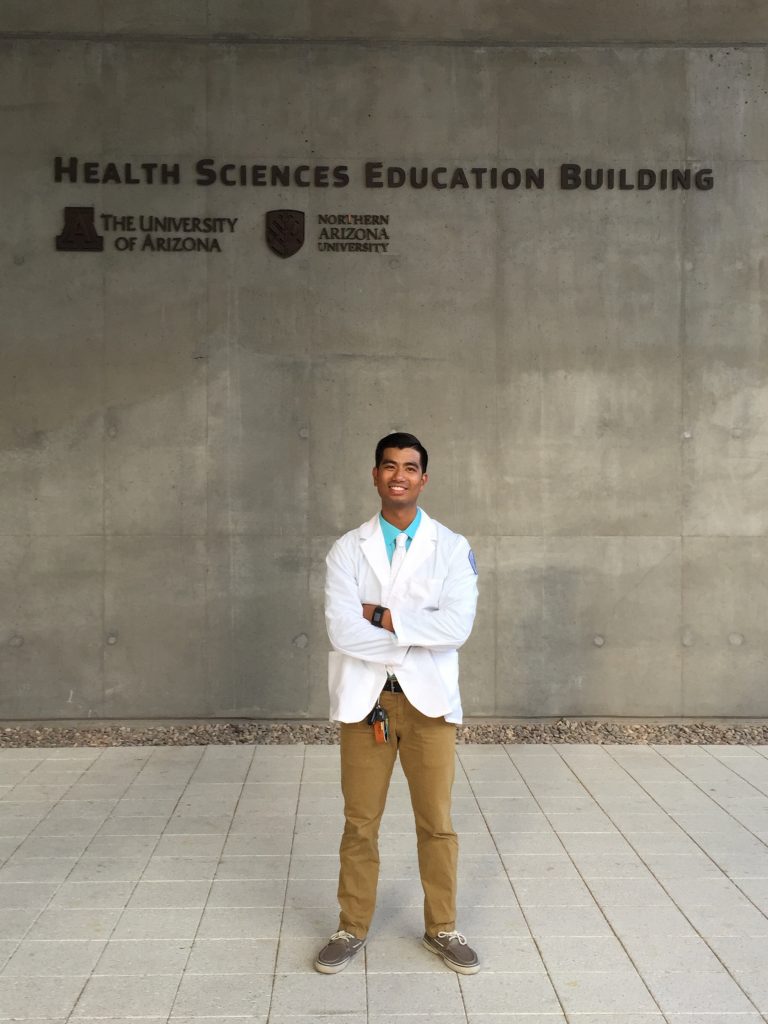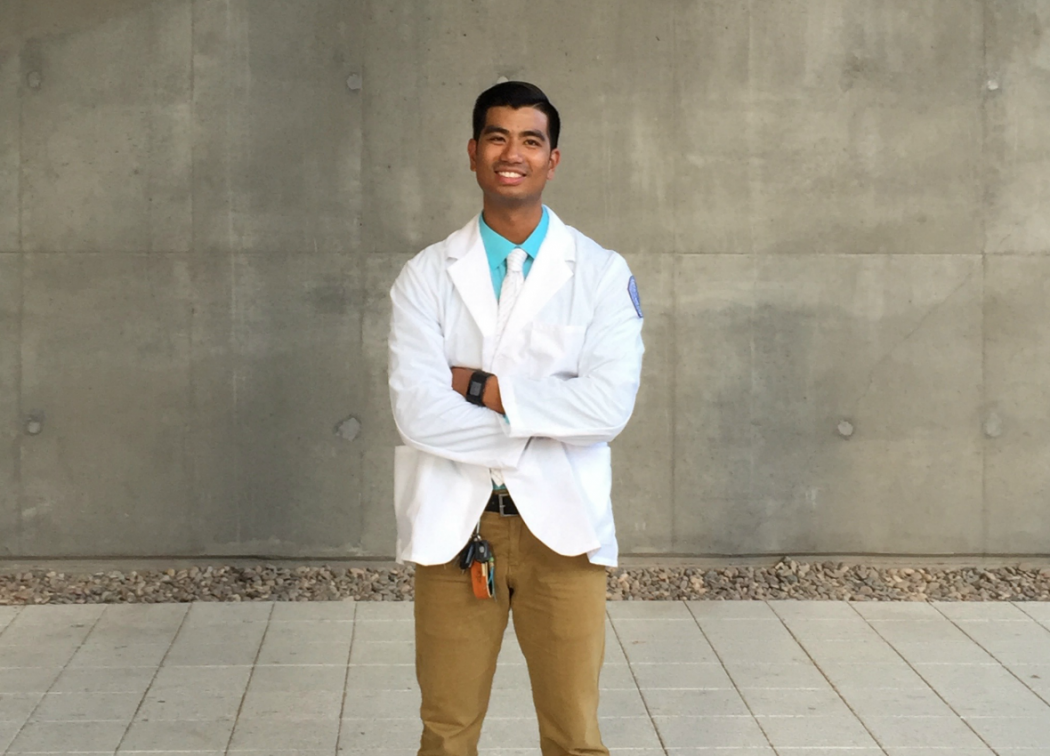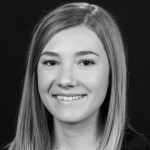In September, the interdisciplinary subsection of The Differential interviewed Jenn Greer, a student in The University of Arizona Master of Science for Entry to the Profession of Nursing (MEPN) program (link here). The goal for these interviews is to learn more about each program and to highlight a student in the program. This month, I interviewed Thomas Yang, a student in the Northern Arizona University Physician Assistant Master’s Program.
Madalyn: What is unique about a physician assistant career and why did you decide to become a PA?

Thomas Yang, student in the Northern Arizona University Physician Assistant Master’s Program.
Thomas: Along with many other PAs and PA students, I began my undergraduate studies as a pre-med student. Yet I had not explored the different types of health care providers. Throughout undergrad I learned more about the PA profession and felt that it was a better fit for me. There are many perks of becoming a PA that stood out to me. First, I like that a PA can work in any specialty of medicine and can also change specialties at any time. The length of time spent in training is substantially less than that of a physician. Lastly, you still get to help people and learn every day in this ever-evolving field.
Madalyn: How long is the NAU program and what is the curriculum like?
Thomas: The NAU PA program is 24 months long. The first year is didactic followed by a year of clinical rotations. In between the two years we go through a three-week “boot camp” where we get exposure to many skills a PA would perform like suturing, lumbar punctures, IVs, and intubation.
The first year is broken up into 3 semesters. The first semester we had anatomy, pathophysiology, and physiology, which were similar classes to the medical students, and we shared the classroom with the physical therapy students. In the first semester, we also had medical ethics, history and physical exam, and Foundations.
In our second and third semesters we started to do “real PA stuff” in classes like Foundations of Clinical Practice, pharmacology, Clinical Disciplines, and Diagnostic Medicine.
Our second year consists of 11 four-week rotations that are at sites all over Arizona. We have required rotations in emergency medicine, internal medicine, surgery, women’s health, mental health, pediatrics, and family medicine. In addition to those seven rotations, we have two electives that can be in any specialty and two primary care selective rotations.
Madalyn: What stage of PA school are you in?
Thomas: I am currently in my second year. I have completed 2 rotations: pediatric cardiology and emergency medicine. I am now in Casa Grande doing internal medicine.
Madalyn: What are clinicals like? What hospitals or clinics do you get to rotate at?
Thomas: Clinicals are super fun! I have to start off by saying that it’s during clinicals when all the information that was crammed during the first year finally comes together and makes sense. I can’t stress enough the importance of applying the medical knowledge to real patients. As I mentioned, my first rotation was in pediatric cardiology in Tucson. I loved it because I was able to tackle the two things I was least comfortable with: heart sounds and EKGs. In my ER rotation at Banner Boswell in Sun City my preceptor was the night shift physician so I got a feel for what nights are like. During this rotation, I really started to feel everything come together. It’s a cool feeling when you perform an H&P, perform tests, and find a diagnosis that you constructed from what you learned in didactics. Now I am in Casa Grande following a hospitalist. This was the perfect rotation to follow after ER because I am able to learn about the continuity of care that happens when a patient goes from the ER to the hospital.
Madalyn: How many students are in your graduating class?
Thomas: We have 49 students in my class. Most are from Arizona but we have a handful from around the country.
Madalyn: What makes the NAU PA program unique?
Thomas: Not only are the facilities beautiful, but our faculty are also phenomenal. Every professor is knowledgeable, kind, and caring. I value the friendships I have made with our faculty as much as the friendships I have with my peers.
Madalyn: What is your best memory of PA school so far?
Thomas: The friendships I have made in PA school have been invaluable. We have had so many good times together through this program, which has been by far the most difficult thing I have ever done. Not only have we shared many laughs, but we have also learned from some of the most eclectic instructors I have ever had in my academic career. The thing I will remember most about NAU is sitting in a classroom with my new friends and learning concepts that will stick forever because they were taught in such a comical and impressionable way.
Madalyn: Anything else you’d like to add?
Thomas: As an NAU PA student I would tell everyone to go to PA school, but in all honesty, I encourage students that are interested in going into any healthcare field to do a lot of research and shadow as many people as possible. I am ecstatic everyday to be here, even with all the stress and lack of sleep! If anyone has any questions about the PA profession or about NAU please feel free to email me at ty73[at]nau.edu
Madalyn Nelson is part of the 2020 class at The University of Arizona College of Medicine – Phoenix. She is an Arizona native and graduated from Xavier University where she earned her bachelor’s degree in biology. Madalyn has a passion for traveling and global health. To contact Madalyn, please email her at madalyndnelson[at]email.arizona.edu.


